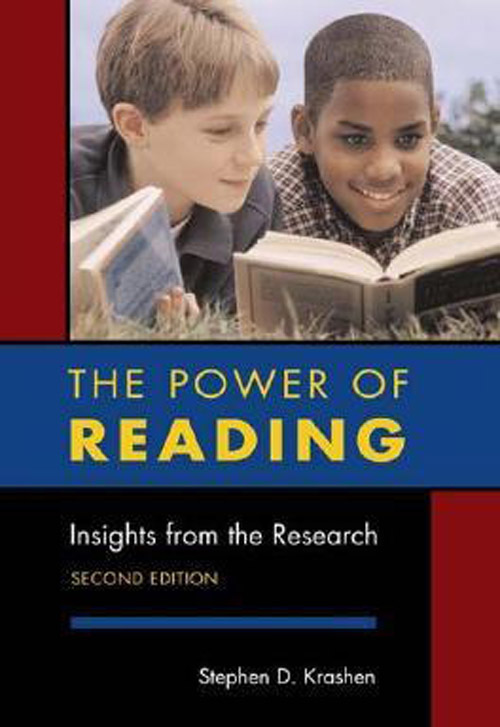Reading for meaning must be defended! Libraries and interesting reading materials -- not 'explicit and structured phonics' -- key to reading success for all children
[Editor's Note: As Substance and others report almost daily, the Neoliberal attacks on the education of working class and poor children -- and their teachers -- are international in scope. The following letter from the inveterate campaigner for children's reading Stephen Krashen was sent to the West Australian (Dec. 28) and is shared here with permission].
"New reading rules for kids," (Western Australian, Dec. 27) states that " ...international research has found that explicit and structured teaching of phonics - the relationship between letters and sounds - is the most effective way to teach reading."
 Stephen Krashen's books should be read along with Susan Ohanian's by everyone interested in helping all children learn to enjoy reading.Not so. What research says is that the impact of explicit and structured phonics is strong only on tests in which children read lists of words in isolation; it is minuscule on tests in which children have to understand what they read.
Stephen Krashen's books should be read along with Susan Ohanian's by everyone interested in helping all children learn to enjoy reading.Not so. What research says is that the impact of explicit and structured phonics is strong only on tests in which children read lists of words in isolation; it is minuscule on tests in which children have to understand what they read.
By far, the best predictor of how well children read for meaning is the amount of self-selected, recreational reading they have done. If Western Australia is interested in a "back to the basics" approach, the first step is to make sure all students have access to interesting reading material, and the best way to do this is to support librarians and libraries. Stephen Krashen
Professor Emeritus
University of Southern California
Original article: http://au.news.yahoo.com/thewest/a/20508718/new-reading-rules-for-kids/
Sources: Impact of phonics: Garan, E. (2001). Beyond the smoke and mirrors: A critique of the National Reading Panel report on phonics. Phi Delta Kappan 82, no. 7 (March), 500-506.
Garan, E. (2002) Resisting Reading Mandates. Portsmouth, NH: Heinemann.
Krashen, S. 2009. Does intensive decoding instruction contribute to reading comprehension? Knowledge Quest 37 (4): 72-74.
Impact of recreational reading: Krashen, S. (2004) The Power of Reading, Heinemann and Libraries Unlimited. Krashen, S. (2011) Free Voluntary Reading. Libraries Unlimited.
Impact of libraries: Libraries and reading achievement: Krashen, S., Lee, SY., & McQuillan, J. 2012. Is the library important? Multivariate studies at the national and international level. Journal of Language and Literacy Education, 8(1)? 26-36. Lance, Keith Curry. 2004. �The Impact of School Library Media Centers on Academic Achievement.� In School Library Media Annual, edited by Carol Kuhlthau, 188�97. Westport, CT: Libraries Unlimited. Lance, K.& Helgren, J. 2010. �The Impact of School Libraries on Studenr Achievement: Exploring the School Library Impact Studies.� www.lrs.org/impact.php
This letter posted at: http://tinyurl.com/lcffqut-----------------------------------------------
Report list problems to listmom@interversity.org

